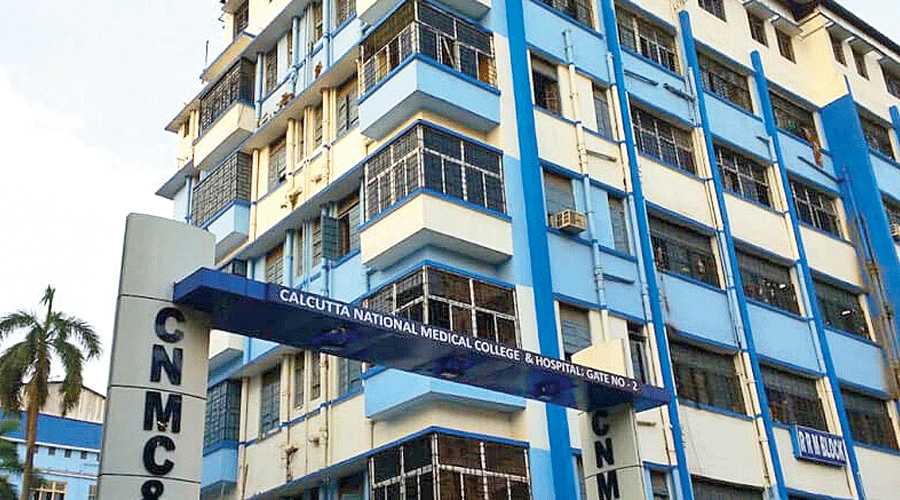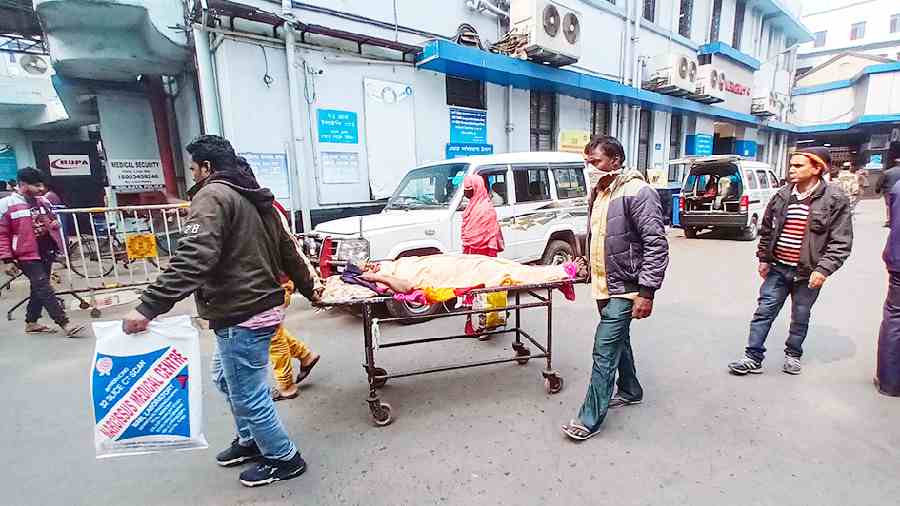A man who was bleeding profusely from the rectum was turned away from two government medical colleges in Kolkata and a third only offered him first aid, family members said.
The 77-year-old is now being treated at a nursing home.
Kalipada Naskar’s plight once again highlights that despite state health department officials’ attempts to improve services at government hospitals and ensure that no one is denied treatment, the situation on the ground has hardly changed.
Naskar’s family members, who live in Garia, said they had taken him to SSKM Hospital on Thursday afternoon as bleeding from the rectum was not stopping.
“He was passing out and his blood pressure was falling. So we decided to take him to hospital,” said a family member. “We reached the Emergency ward of SSKM around 2pm. After two hours, a doctor said no bed was available and advised us to take him to the Calcutta National Medical College and Hospital (CNMCH).”
At CNMCH, family members alleged, doctors said surgeons who could treat Naskar were unavailable. “They said the surgeons are on duty twice a week and asked us to come back later,” said a family member.
Naskar was then taken to the NRS Medical College and Hospital. “Doctors at NRS provided some first aid but said he could not be admitted. They asked us to come back after a few days,” he said.
The family then took him to ESI Hospital, Maniktala, from where he was referred to a private hospital, they said.
A senior official in the state health department said they would look into the allegations that Naskar had been denied admission by government hospitals.
Naskar is not alone. Many patients are denied admission by government hospitals on a regular basis.
The Telegraph has reported that the state health department is trying to address problems such as denial of admission by government hospitals, absence of doctors from work and unnecessary referrals.
A senior official had said hospitals had been asked to refer a patient only after ensuring that a bed was available at the hospital where he or she was being referred to.
“However, refusals are still happening. The only solution is stringent monitoring. But stringent supervision of the functioning of big hospitals such as SSKM is difficult because of a lack of enough personnel,” the official said.
“We are trying to introduce some measures to improve monitoring.”
A former official of the state health department said a number of “technical people” like doctors and nurses would not allow the situation to improve because of their own benefit.
“Many doctors and others at government hospitals are involved in illegal private practice during duty hours. These technical people, who run the system, resist any change for their vested interests. They set a bad example for their juniors,” the former official said.
“Many hospital administrators are unable to take steps because of a lack of will to implement such changes. We have to implement a reward-and-punishment policy over a long period to improve things.”
Senior doctors at government medical colleges pointed out that the authorities were equally at fault. They raised issues such as lack of proper monitoring of doctors’ attendance and absence of a proper appraisal system.
A doctor suggested that a regulatory commission be set up for government hospitals, on the lines of the one for private health-care facilities. “The commission has a good impact. People are benefitting from it,” the doctor said.
A health official said the state clinical establishment regulatory commission had received around 1,500 complaints against private facilities since it was set up in 2017. “All the complaints have been disposed of,” the official said.

